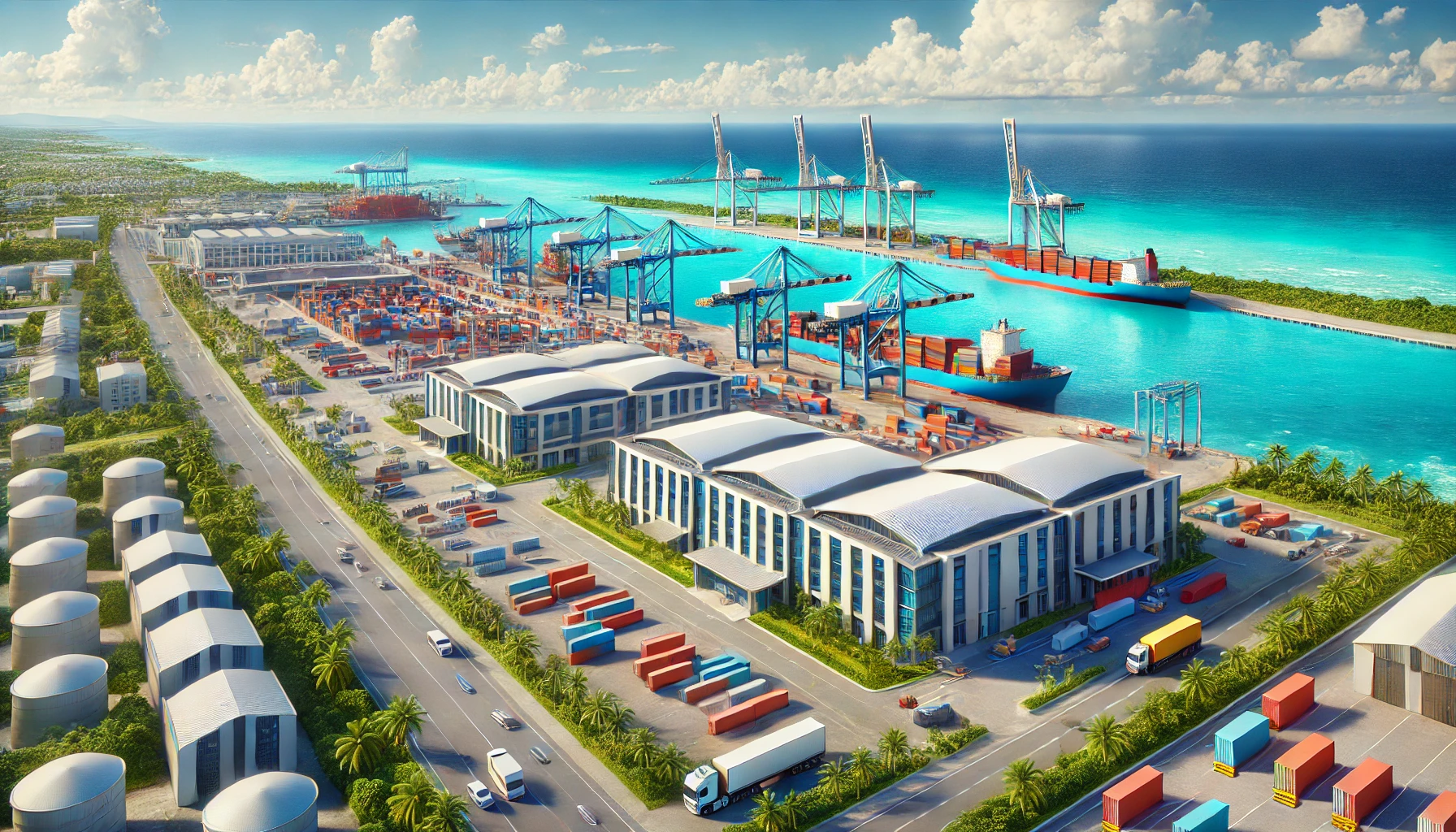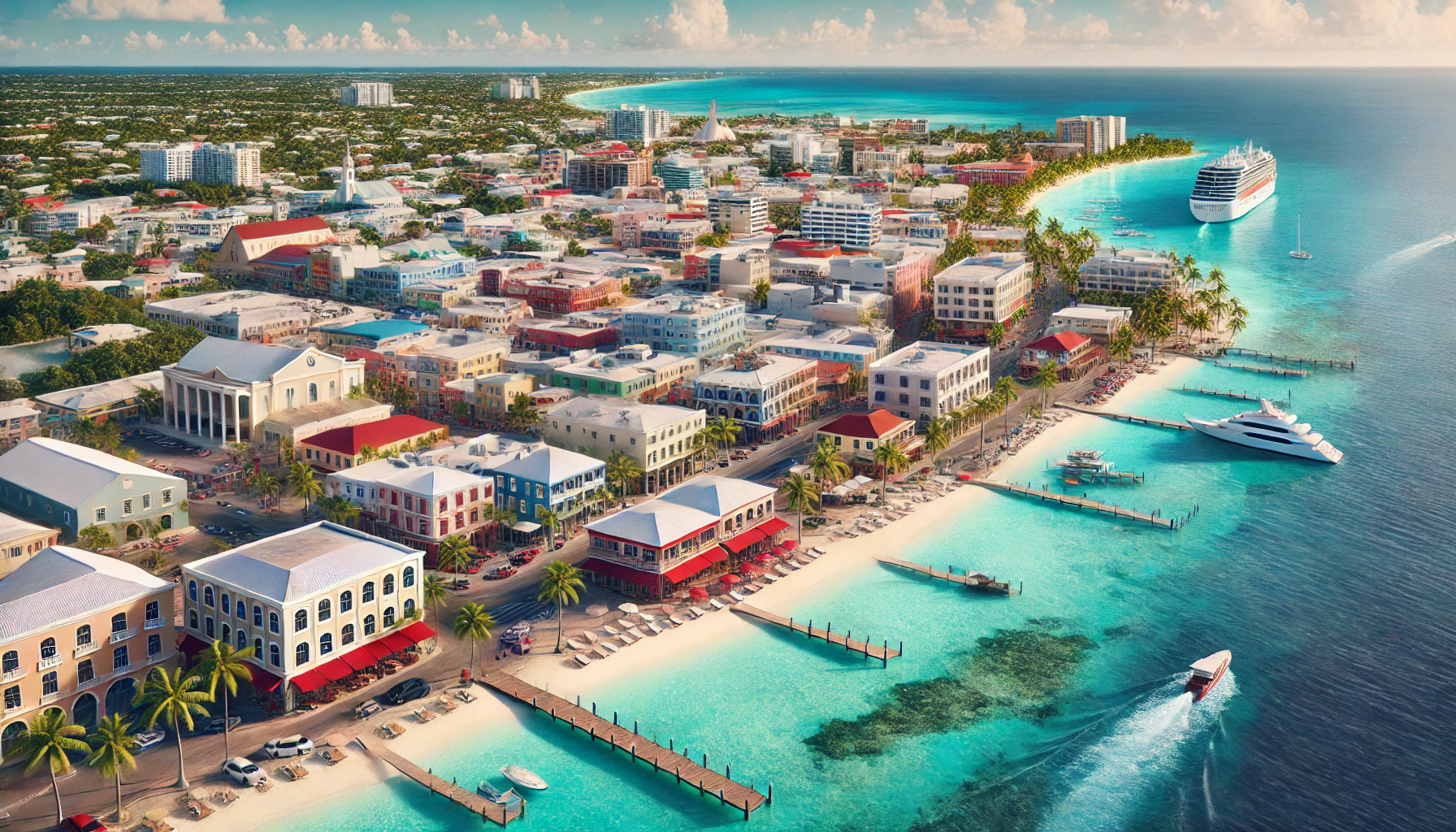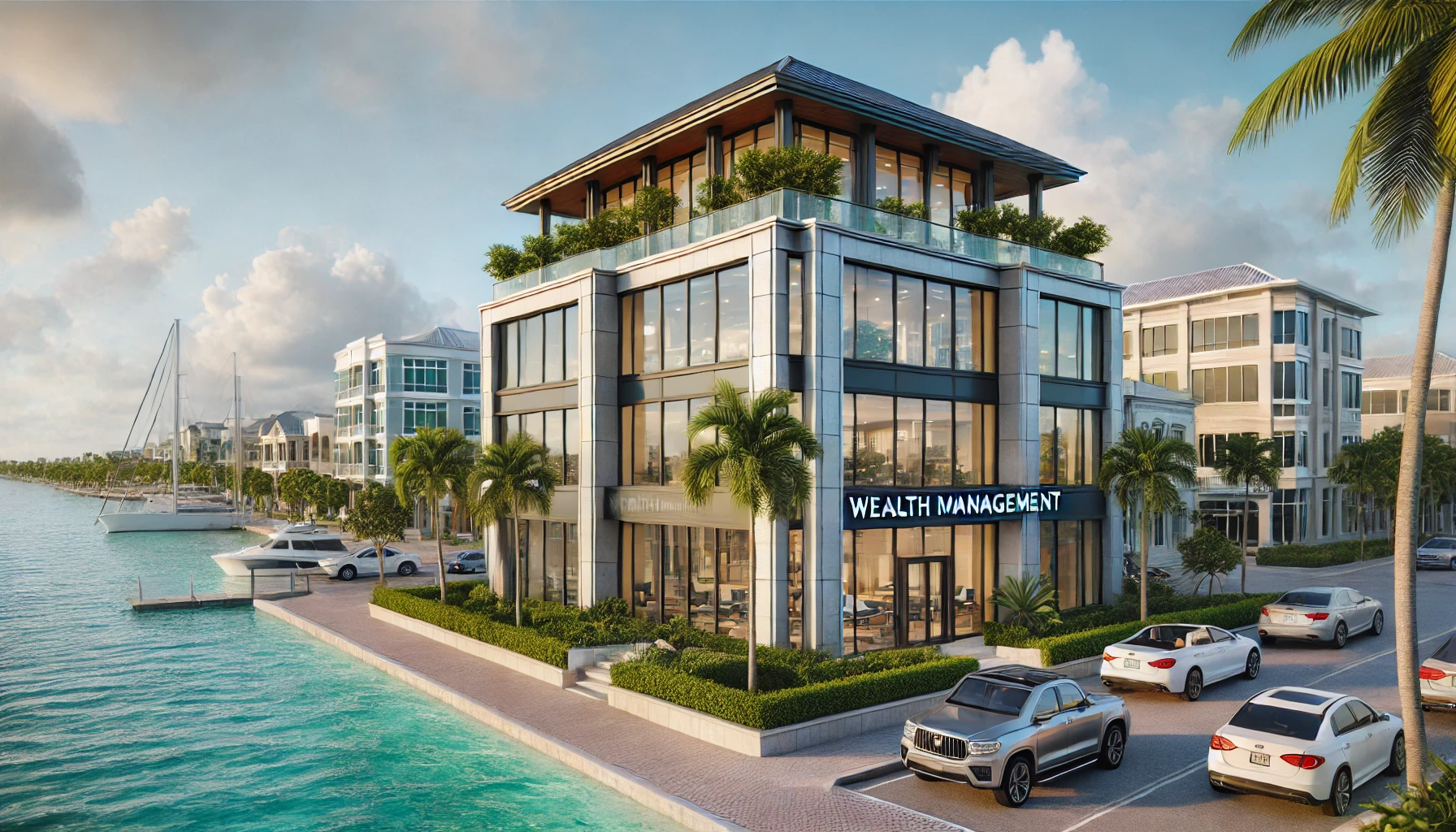When you think of the Caribbean, pristine beaches and luxury resorts might come to mind, but there’s a growing buzz around Caribbean industrial real estate. With its strategic location bridging North and South America, the region is becoming a prime hub for logistics, manufacturing, and warehousing. This shift is opening up exciting opportunities for businesses looking to expand in a thriving market.
The demand for industrial spaces in the Caribbean is fueled by global trade routes, economic growth, and infrastructure improvements. Whether you’re exploring ports in Jamaica or industrial parks in Trinidad, the region offers a unique blend of accessibility and potential. It’s more than just a tropical paradise—it’s a gateway to global business.
Investing in Caribbean industrial real estate means tapping into a market with long-term growth potential. As industries diversify and modernize, you’ll find opportunities to align your business goals with the region’s evolving landscape.
Caribbean Real Estate: Navigating the Market for Industrial Properties

Overview of Industrial Real Estate
The Caribbean industrial real estate sector offers diverse investment opportunities. Its strategic position near global trade routes supports logistics properties and growing demand for warehouse and manufacturing facilities. Infrastructure projects and free trade zones strengthen the region’s market appeal.
Market analysis indicates steady growth in rental income potential, with industrial spaces attracting businesses in e-commerce, processing, and distribution industries. The availability of tax incentives in some territories further enhances investment value.
Investing in Caribbean industrial properties helps you capitalize on regional economic expansion and trade activities. Properties near ports, highways, or urban centers deliver competitive returns while enhancing logistic efficiencies.
Definition and Importance of Industrial Properties
Industrial properties are real estate assets used for manufacturing, storage, and distribution. These include logistics properties like warehouses, distribution centers, and factories. Their demand rises with the expansion of global trade.
In the Caribbean, industrial real estate plays a key role in supporting regional supply chains and economic diversification. Specialized assets like cold storage or high-tech facilities meet niche market demands. You’ll find these properties critical for industries that rely on timely operations and scalable infrastructure.
Such properties offer long-term returns through rental income and appreciation. Their strategic location within trade zones or near transportation networks boosts their economic significance and market value for owners and tenants.
Growing Demand in the Caribbean Region
Demand for industrial spaces in the Caribbean is increasing due to trade growth and regional developments. Market analysis highlights sectors like logistics and e-commerce driving the need for warehouses and fulfillment centers.
Rental income potential grows as regional businesses and multinational firms seek efficient facilities. Popular areas like Trinidad, Jamaica, and the Dominican Republic see heightened activity due to port accessibility and robust transport infrastructure.
Owning industrial assets in the Caribbean positions you to benefit from economic growth and government-backed investment opportunities. The rising focus on modernizing logistics properties ensures continued demand for functional and well-connected sites.
Investment Opportunities

Explore the robust market for industrial properties in the Caribbean, where strategic locations and economic initiatives create compelling avenues for investing in logistics, manufacturing, and warehousing assets.
Key Sectors: Logistics, Warehousing, Manufacturing
Caribbean industrial real estate aligns directly with critical industries like logistics, warehousing, and manufacturing. Logistics properties, including distribution centers and cross-dock facilities, support trade-dependent sectors by enhancing supply chain efficiency. Warehousing demand continues to rise, propelled by growth in e-commerce and the need for scalable storage solutions. Manufacturing spaces, particularly in free trade zones, offer rental income opportunities for investors targeting light assembly operations or value-added production. Sectors requiring specialized infrastructure, such as cold chain logistics and advanced processing plants, also present avenues to diversify your investment portfolio.
High-Growth Areas in the Caribbean
Target specific high-growth regions across the Caribbean to maximize returns. Locations like Trinidad, Jamaica, and the Dominican Republic host thriving industrial hubs due to modern port facilities and proximity to major shipping lanes. Trinidad’s petrochemical-driven economy fuels demand for industrial spaces, while Jamaica’s logistics infrastructure supports warehousing and manufacturing expansion. The Dominican Republic leverages free trade zone incentives, combining market analysis with competitive costs to attract investors. These areas guarantee steady rental income and long-term value, supported by economic growth and strategic trade advantages.
Market Analysis

The Caribbean industrial real estate market continues to attract attention due to its strong demand for logistics properties and high rental income potential. Investors are capitalizing on strategic locations, diverse industrial hubs, and economic incentives to unlock long-term value.
Current Trends in Industrial Real Estate
Demand for logistics properties, such as warehouses, cold storage facilities, and distribution centers, is rising steadily. E-commerce growth has created an increased need for modern warehousing that supports agile supply chains. High-demand regions like Trinidad, Jamaica, and the Dominican Republic are expanding their industrial zones to accommodate this shift.
The emphasis on specialized industrial facilities, including technology-enabled properties, has grown, reflecting the need for scalable infrastructure. Market analysis shows strong investor interest in properties that align with advanced logistics requirements, particularly near major ports and free trade zones. The high occupancy rates and steady increases in rental income further underline the market’s growth trajectory.
Factors Driving Market Growth
Proximity to global trade routes and modernized port infrastructure drives the Caribbean’s attractiveness for industrial investment opportunities. Government initiatives, including tax incentives and free trade agreements, encourage foreign investments in industrial development.
Diversification of the regional economy boosts demand for facilities supporting sectors like assembly, processing, and high-tech manufacturing. The rise of trade logistics as a core driver enhances the need for warehouse and distribution properties at strategically located hubs. With steady returns from rental income and a growing emphasis on logistics properties, the market offers a solid foundation for sustainable growth.
Rental Income Potential

Caribbean industrial real estate offers promising rental income potential due to growing demand for logistics properties and diverse industrial hubs. Strategic locations and economic incentives ensure steady returns for investors.
Benefits of Long-Term Leases
Industrial properties with long-term leases provide stability and consistent cash flow. Tenants often include e-commerce businesses, manufacturing firms, and distribution centers, which prefer extended lease agreements for operational continuity. This reduces vacancy risks and simplifies property management.
In regions like Jamaica and the Dominican Republic, long-term leases are common in logistics properties due to high demand driven by expanding trade and e-commerce growth. Investors secure predictable rental income streams while aligning with market trends favoring larger, scalable industrial facilities.
Competitive Yields in Logistics Real Estate
Logistics real estate in the Caribbean delivers competitive rental yields due to limited supply and rising demand. Warehouses, cold storage facilities, and distribution centers enable tenants to optimize supply chains, increasing their operational value.
Market analysis highlights investment opportunities in high-growth areas such as Trinidad, where modernized ports and free trade zones enhance the attractiveness of industrial spaces. Strategic locations near global trade routes contribute to consistent yield performance, positioning logistics properties as valuable assets in the industrial real estate market.
Benefits of Owning Industrial Properties

Industrial properties in the Caribbean offer strong investment opportunities, aligning with strategic trade routes and growing regional economies. Owning these assets can provide long-term value, steady income, and diversification benefits, particularly through logistics properties like warehouses and distribution centers.
Asset Diversification
Owning industrial properties diversifies your investment portfolio across a resilient asset class. Unlike residential or retail properties, industrial assets deliver stable rental income, even during economic fluctuations, as they’re essential for supply chains and trade. Logistics properties, such as cold storage facilities and e-commerce warehouses, cater to industries with consistent demand, reducing the risk of vacancy.
Diversification supports financial stability by spreading risks across various income streams. Properties in high-demand areas like Jamaica, Trinidad, and the Dominican Republic ensure consistent returns, supported by modern infrastructure and proximity to global trade routes. This diversification enhances your ability to capitalize on different market segments, including distribution, manufacturing, and high-tech sectors.
Strategic Role in Regional Trade and Infrastructure
Industrial properties play a critical role in the Caribbean’s trade and infrastructure development. These assets directly support logistics, warehousing, and manufacturing sectors vital for regional economic growth. Proximity to modernized seaports and free trade zones improves the efficiency of supply chains and enhances the value of logistics properties.
Governments in the region prioritize infrastructure development, offering investment opportunities through tax incentives and trade agreements. With consistent market analysis confirming rising demand, owning logistics properties, such as distribution centers, connects you to economic initiatives that ensure long-term asset appreciation and rental income growth.
Conclusion

Caribbean industrial real estate presents an exciting opportunity for investors seeking long-term growth and diversification. With its strategic location, modernized infrastructure, and government-backed incentives, the region is primed for sustained demand in logistics, warehousing, and manufacturing sectors.
As industries evolve to meet global trade needs, owning industrial properties in high-growth areas like Jamaica, Trinidad, and the Dominican Republic positions you to benefit from steady rental income and rising asset values. The Caribbean’s role as a critical hub for supply chains ensures these investments remain both relevant and profitable.
By capitalizing on this dynamic market, you can align with emerging trends and secure a foothold in one of the most promising industrial real estate sectors globally.







































